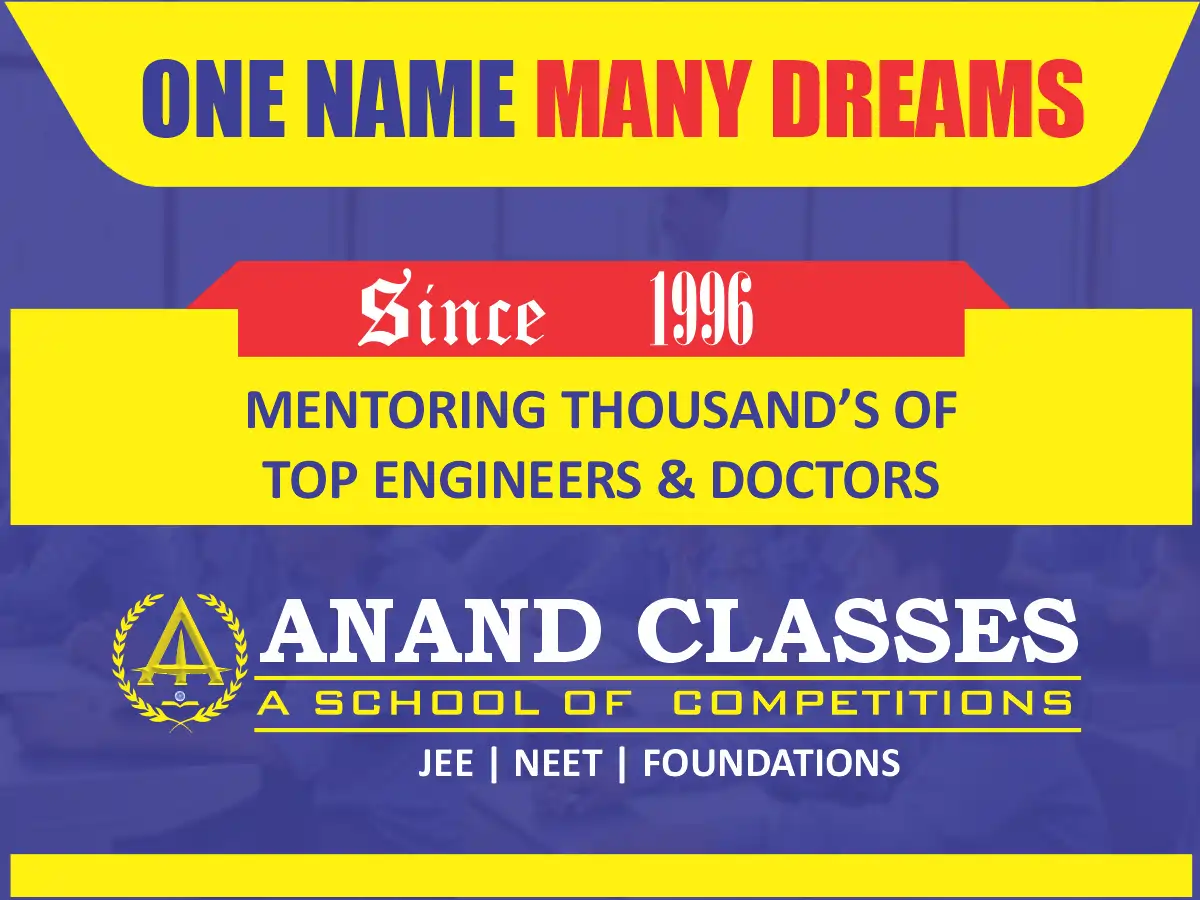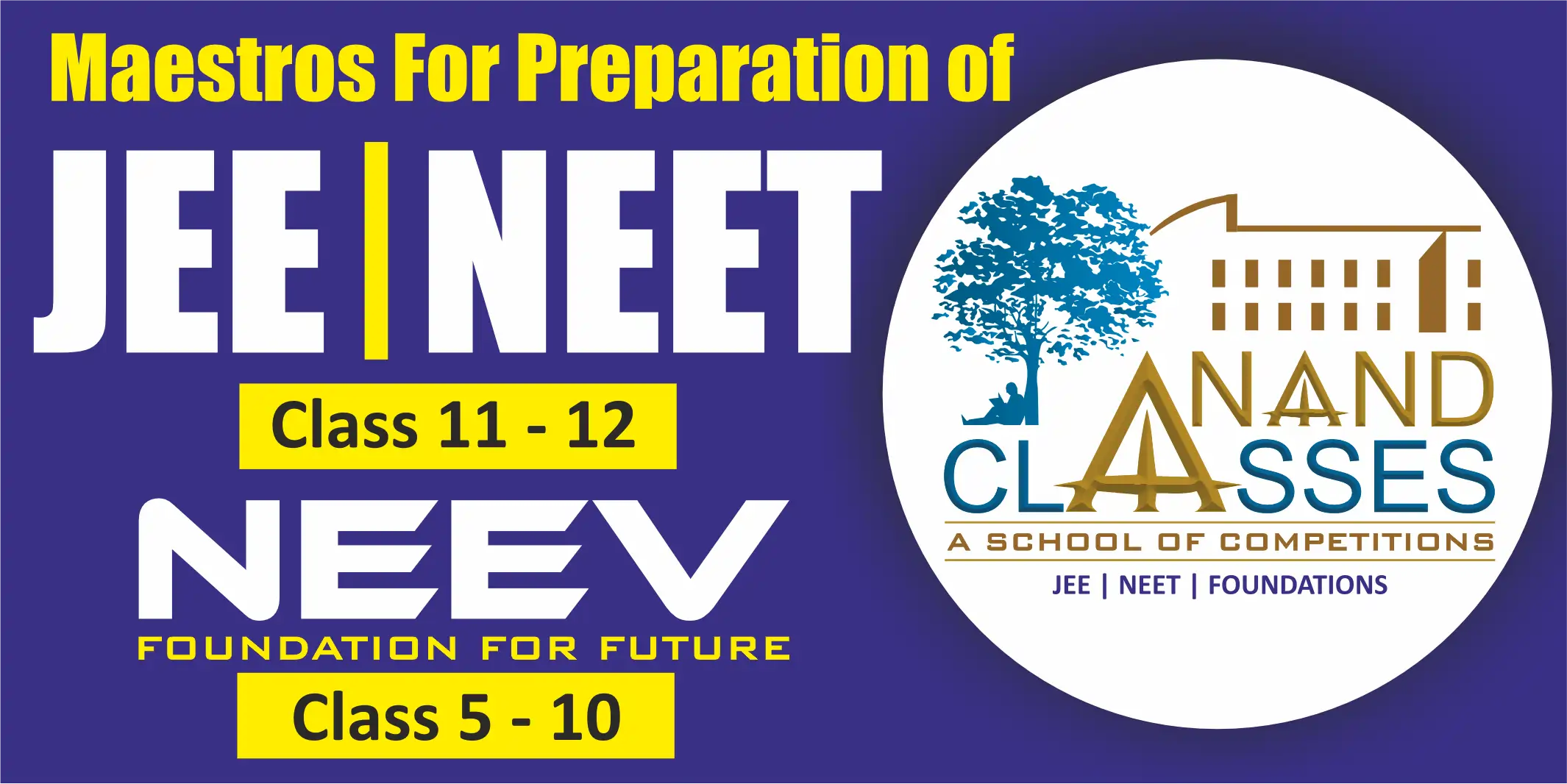Anand Classes offers detailed Class 10 Science notes on Combination Reactions with explanations, solved MCQs, examples, and downloadable PDFs for CBSE, ICSE, JEE and NEET Foundation.
🤔 What is a Combination Reaction?
Q1: What is meant by a combination reaction?
A: A combination reaction is a type of chemical reaction in which two or more substances combine to form a single product. These substances can be elements or compounds. The key feature is the formation of only one product.
🧪 Examples of Combination Reactions
Q2: Can you give an example where two elements combine in a combination reaction?
A: Yes, one classic example is:
➡️ Magnesium and oxygen combine when heated to form magnesium oxide.
Chemical Equation: $$2Mg(s) + O_2(g) \rightarrow 2MgO(s)$$
Here, both magnesium and oxygen are elements, and they combine to form one compound – magnesium oxide.
Q3: How do hydrogen and oxygen react in a combination reaction?
A: When hydrogen burns in oxygen, they combine to form water.
Chemical Equation: $$2H_2(g) + O_2(g) \rightarrow 2H_2O(l)$$
🔹 Both hydrogen and oxygen are gases and elements. They form water, which is a compound.
🔹 This reaction is also exothermic – it releases energy.
Q4: Is the burning of coal (carbon) a combination reaction?
A: Yes. Carbon reacts with oxygen to form carbon dioxide.
Chemical Equation: $$C(s) + O_2(g) \rightarrow CO_2(g)$$
This is a combination of two elements – carbon and oxygen – forming one compound.
Q5: How does hydrogen combine with chlorine?
A: Hydrogen reacts with chlorine to form hydrogen chloride.
Chemical Equation: $$H_2(g) + Cl_2(g) \rightarrow 2HCl(g)$$
This reaction forms hydrogen chloride gas, which is used industrially to produce hydrochloric acid (when dissolved in water).
Q6: What happens when sodium reacts with chlorine?
A: Sodium burns in chlorine gas to form sodium chloride (common salt).
Chemical Equation: $$2Na(s) + Cl_2(g) \rightarrow 2NaCl(s)$$
This is another example of two elements combining to form a single product.
🧲 Combination Reactions of Elements with Compounds
Q7: How does iron react with sulphur?
A: Iron powder combines with sulphur upon heating to form iron sulphide.
Chemical Equation: $$Fe(s) + S(s) \rightarrow FeS(s)$$
Both are elements forming a new compound – a typical combination reaction.
🧫 Combination Reactions Between Compounds
Q8: Can two compounds combine in a combination reaction?
A: Yes. For example, calcium oxide (quicklime) reacts with water to form calcium hydroxide (slaked lime).
Chemical Equation: $$CaO(s) + H_2O(l) \rightarrow Ca(OH)_2(s)$$
✅ This is an exothermic reaction (produces heat)
✅ Used in white-washing walls
Q9: How is this reaction used in white-washing?
A: Calcium hydroxide (slaked lime) is applied to walls. It reacts with carbon dioxide from the air to form calcium carbonate, which gives a white, shiny finish.
Equation: $$Ca(OH)_2(aq) + CO_2(g) \rightarrow CaCO_3(s) + H_2O(l)$$
🧱 Calcium carbonate (CaCO₃) forms a hard, shiny layer on the wall surface.
💨 Other Examples of Combination Reactions
Q10: What happens when ammonia reacts with hydrogen chloride?
A: They form ammonium chloride, a white smoke or fume.
Equation: $$NH_3(g) + HCl(g) \rightarrow NH_4Cl(s)$$
📌 Both reactants are compounds, and the product is a new compound.
Q11: Is the reaction of carbon monoxide with oxygen a combination reaction?
A: Yes. Carbon monoxide (CO), a compound, reacts with oxygen (O2), an element, to form carbon dioxide (CO2).
Equation: $$2CO(g) + O_2(g) \rightarrow 2CO_2(g)$$
Q12: What happens when sulphur dioxide reacts with oxygen?
A: Sulphur dioxide (SO₂) combines with oxygen to form sulphur trioxide (SO₃).
Equation: $$2SO_2(g) + O_2(g) \rightarrow 2SO_3(g)$$
Here are MCQs (Multiple Choice Questions) based on Combination Reactions suitable for Class 10 Science (CBSE/ICSE/NCERT), competitive exams, and your Anand Classes content:
🧠 MCQs on Combination Reactions (With Answers & Explanations)
Q1. Which of the following is a combination reaction?
A. $CaCO_3 \rightarrow CaO + CO_2$
B. $H_2 + Cl_2 \rightarrow 2HCl$
C. $2KClO_3 \rightarrow 2KCl + 3O_2$
D. $2AgNO_3 + Cu \rightarrow Cu(NO_3)_2 + 2Ag$
Answer: ✅ B
Explanation: Two elements combine to form a single compound. It’s a typical combination reaction.
Q2. What is the product formed when calcium oxide reacts with water?
A. Calcium carbonate
B. Calcium chloride
C. Calcium hydroxide
D. Calcium bicarbonate
Answer: ✅ C
Explanation: $CaO + H_2O \rightarrow Ca(OH)_2$
This is a combination reaction between a compound and water.
Q3. Which of the following is not a combination reaction?
A. $2Mg + O_2 \rightarrow 2MgO$
B. $C + O_2 \rightarrow CO_2$
C. $NaOH + HCl \rightarrow NaCl + H_2O$
D. $CaO + H_2O \rightarrow Ca(OH)_2$
Answer: ❌ C
Explanation: Option C is a neutralization reaction, not a combination reaction.
Q4. Which combination reaction is used in white-washing walls?
A. $CaCO_3 + HCl \rightarrow CaCl_2 + CO_2 + H_2O$
B. $CaO + H_2O \rightarrow Ca(OH)_2$
C. $Ca(OH)_2 + CO_2 \rightarrow CaCO_3 + H_2O$
D. Both B and C
Answer: ✅ D
Explanation:
- Quicklime reacts with water → slaked lime
- Slaked lime reacts with CO₂ in air → calcium carbonate (white coating)
Q5. Which of the following reactions is exothermic and a combination reaction?
A. $2H_2 + O_2 \rightarrow 2H_2O$
B. $2HgO \rightarrow 2Hg + O_2$
C. $CaCO_3 \rightarrow CaO + CO_2$
D. $Zn + H_2SO_4 \rightarrow ZnSO_4 + H_2$
Answer: ✅ A
Explanation: Hydrogen and oxygen combine to form water with the release of heat → exothermic + combination.
Q6. What is the product when hydrogen reacts with chlorine?
A. H2O
B. HCl
C. H2Cl
D. Cl2O
Answer: ✅ B
Explanation: $H_2 + Cl_2 \rightarrow 2HCl$
Hydrogen chloride is formed – a combination of two elements.
Q7. Which of these is formed in the reaction: $NH_3 + HCl \rightarrow ?$
A. $NH_4Cl$
B. $NH_4OH$
C. $HNO_3$
D. $NCl_3$
Answer: ✅ A
Explanation:
Ammonia and hydrogen chloride form ammonium chloride – a white fume.
Q8. Which reaction shows combination between two compounds?
A. $CaO + H_2O \rightarrow Ca(OH)_2$
B. $H_2 + Cl_2 \rightarrow HCl$
C. $C + O_2 \rightarrow CO_2$
D. $Fe + S \rightarrow FeS$
Answer: ✅ A
Explanation: Calcium oxide and water are compounds that form a new compound (slaked lime).
Q9. Which one is an incorrect statement?
A. Combination reactions always release heat.
B. Combination reactions always produce a single product.
C. Elements can react with compounds in combination reactions.
D. CO + O2 → CO2 is a combination reaction.
Answer: ❌ A
Explanation: Not all combination reactions are exothermic. Most are, but not all.
Q10. Which is a correct balanced equation for a combination reaction?
A. $H_2 + O \rightarrow H_2O$
B. $2H_2 + O_2 \rightarrow 2H_2O$
C. $H_2 + O_2 \rightarrow H_2O$
D. $H + O_2 \rightarrow H_2O$
Answer: ✅ B
Explanation: Correct stoichiometry for combining hydrogen and oxygen to form water.
📌 Summary – Characteristics of Combination Reactions
✅ Involves two or more reactants
✅ Always produces one product
✅ Can involve:
- Element + Element
- Compound + Compound
- Element + Compound
✅ Often exothermic (releases heat)
🧠 Do You Know?
- Slaked lime (Ca(OH)₂) is a white powder used for white-washing.
- Ammonium chloride forms dense white fumes when ammonia and HCl gas meet.
- Combination reactions are the reverse of decomposition reactions.








